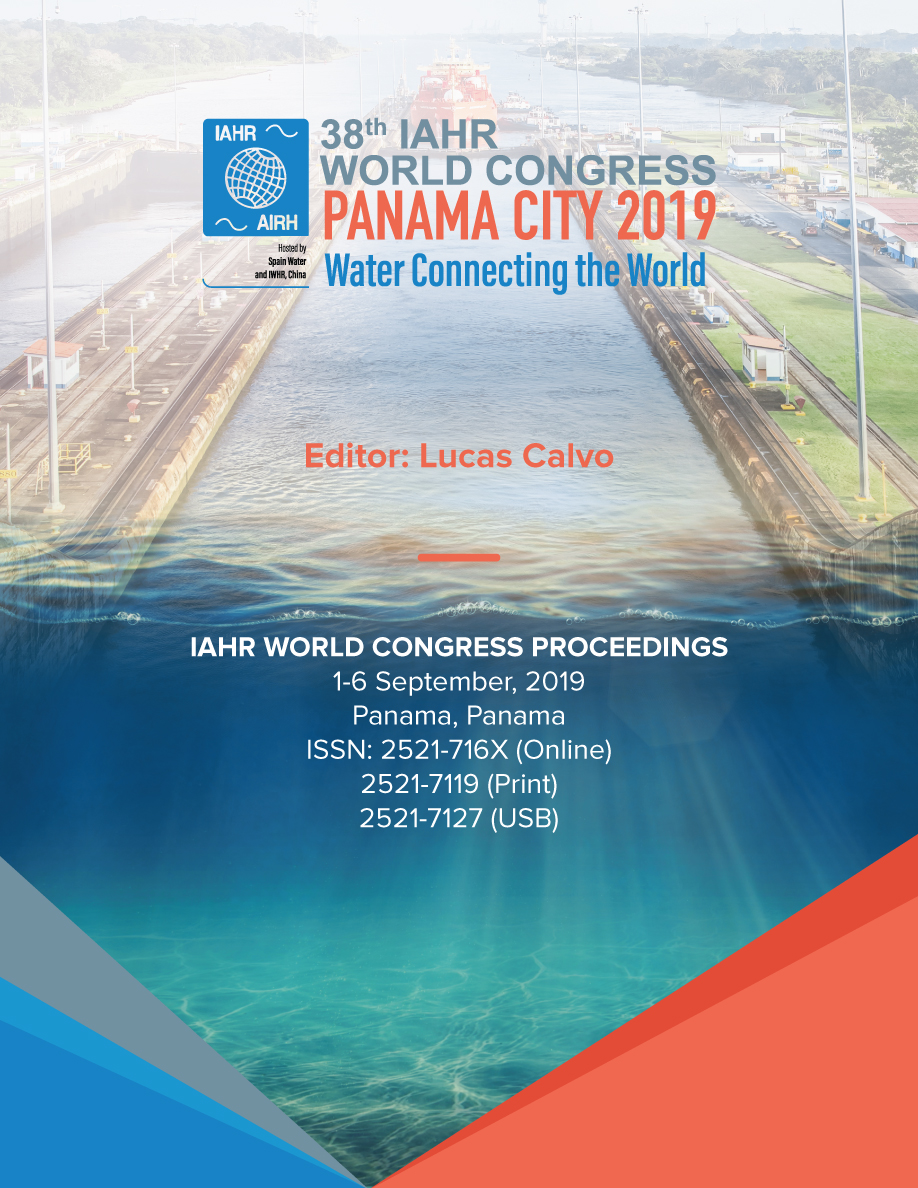IAHR Document Library

Proceedings of the 38th IAHR World Congress (Panama, 2019)
- ISSN Online: 2521-716X (Online); 2521-7127 (USB)
- ISSN Print: 2521-7119
- ISBN: 978-90-835589-8-1
- Publisher: International Association for Hydro-Environment Engineering and Research (IAHR)
- Editor(s): Lucas Calvo
- Related: 38th IAHR World Congress (2019, Panama City, Panama)
Water Connecting the World summaries the approach of the congress held in Panama City, Panama, from September 1 to 6, 2019.
A strategic point to air connections between the Americas, with a skyline filled with modern buildings, Panama City is well known for its business structure, cosmopolitan culture and biodiversity. The Panama Canal, only fifteen minutes from downtown Panama City, is one of the most important engineering works of the 20th and 21th century.
Panama is a country of diversity and contrasts; a country of multiple atmospheres, diverse in the historical, geographical and cultural aspects, and inhabited by a colourful mixture of ethnicities and customs. Because of this unique combination of people and unusual places, Panama City is a magical and fascinating destination. The Congress will provide every participant with a life-time memorable experience.
The Congress is organized by the City of Knowledge Foundation (FCDS), Panama Canal Authority (ACP) Technological University of Panama (UTP), Santa Maria la Antigua University (USMA), Universidad Latina de Panamá (ULATINA), Water Center for the Humid Tropics of Latin America and The Caribbean (CATHALAC) and National Secretariat of Science, Technology and Innovation (SENACYT).
Procedure
The papers included in this volume were part of the 38th IAHR World Congress cited on the cover and title page. Papers were selected and subjected to review by the Editor and the International Scientific Committee and followed a revision process with the following steps: First, several of the committees involved in the organization of the congress established a set of technical criteria for the Committee in charge of the revision. Submitted papers were sent to one or two experts in the field. Authors were then asked to include the necessary amendments and follow the reviewers' comments, and their work was reviewed until the final version was approved by the Editor.
Ethical Guidelines and Code of Conduct
In addition to the technical criteria, IAHR publications follow the Ethical Guidelines and Code of Conduct provided by the Committee of Publication Ethics (COPE). A Publication Ethics and a Publication Malpractice statement are publicly available throughout the entire review process.
Committees
The International Scientific Committee (ISC) provides counsel and support to the Local Organising Committee (LOC) and to the Local Director´s Committee for the scientific and technical coordination of the congress.
Content
Theme A - Hydraulic Structures (110)
Theme B - Ports and Coastal Engineering (38)
Theme C - Hydro-environment (125)
Theme D - Water Management and Hydro-informatics (73)
Theme E - River and Sediment Management (148)
Theme F - Climate Change and Extreme Events (44)
Special Sessions (212)